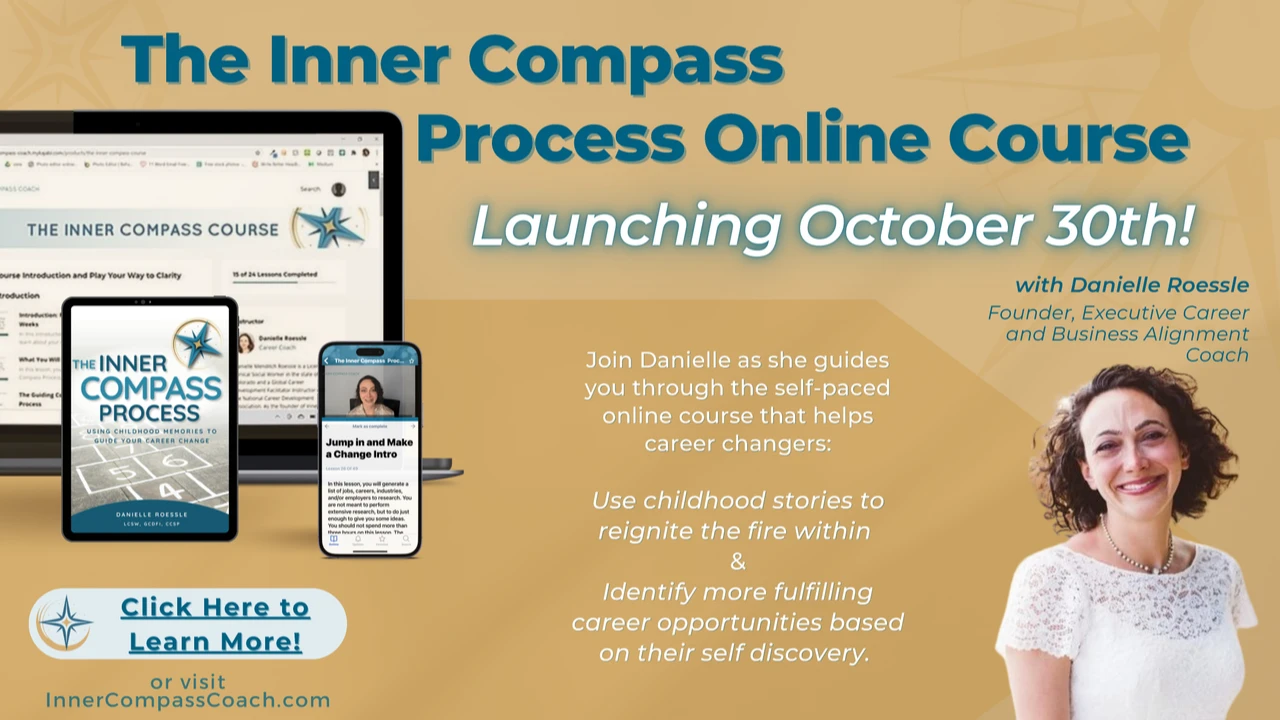Our Blog

Features
All Categories
- All
- Career Coaching Questions
- Career Direction Tips
- Career Mindset
- Career Satisfaction
- Career Satisfaction
- Career Transition
- Employability
- Interviewing
- Job Security
- Launch A Business
- Limited Time Availability
- Negotiating Higher Salaries
- Networking Tips
- Online Coaching Course
- Practical Advice
- Professional Networking
- Start A Business
- Starting A Business
- Tax Deductions

Danielle Roessle
Founder, Inner Compass Coach
Danielle Menditch Roessle is a Licensed Clinical Social Worker in the state of Colorado and a Global Career Development Facilitator Instructor with the National Career Development Association. As the founder of Inner Compass Coach, she uses a unique blend of career development and psychology to help her clients get unstuck and guide them toward a fulfilling and financially rewarding career.
16.08.2024
Career Satisfaction
23.08.2024
Career Coaching Questions
22.08.2024
Limited Time Availability
22.08.2024
Career Mindset
22.08.2024
Career Mindset
17.08.2024
Career Direction Tips
17.08.2024
Career Direction Tips





